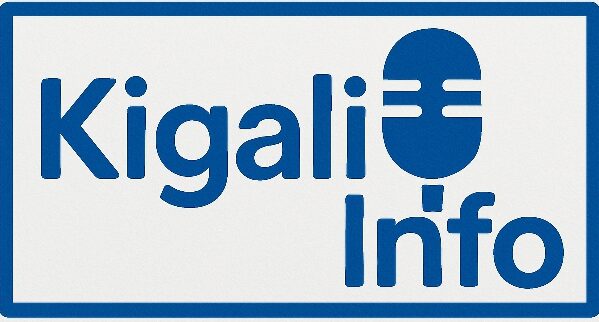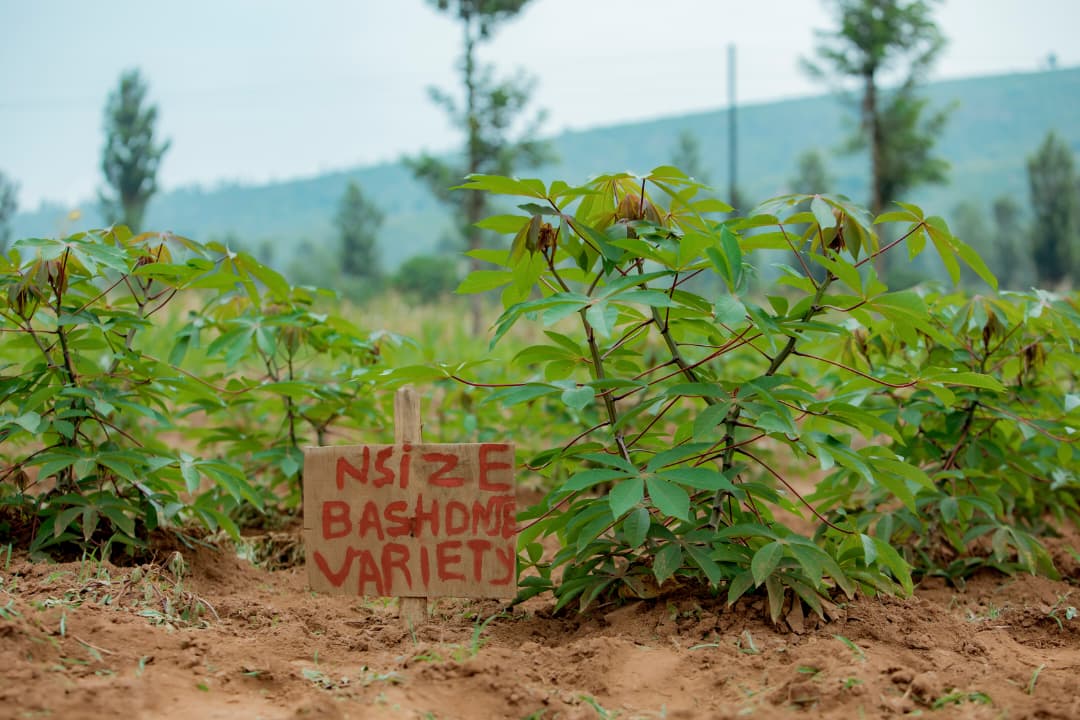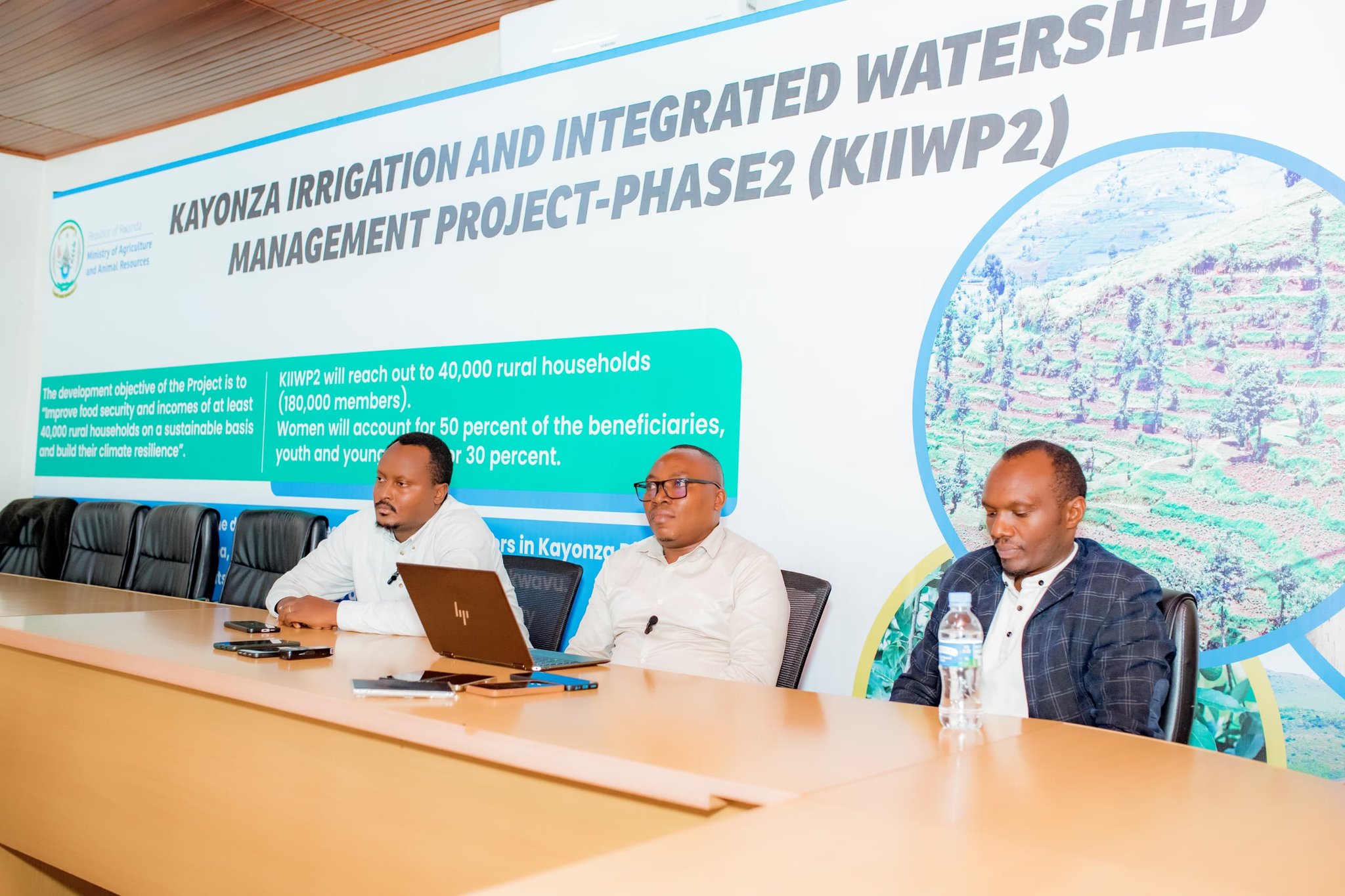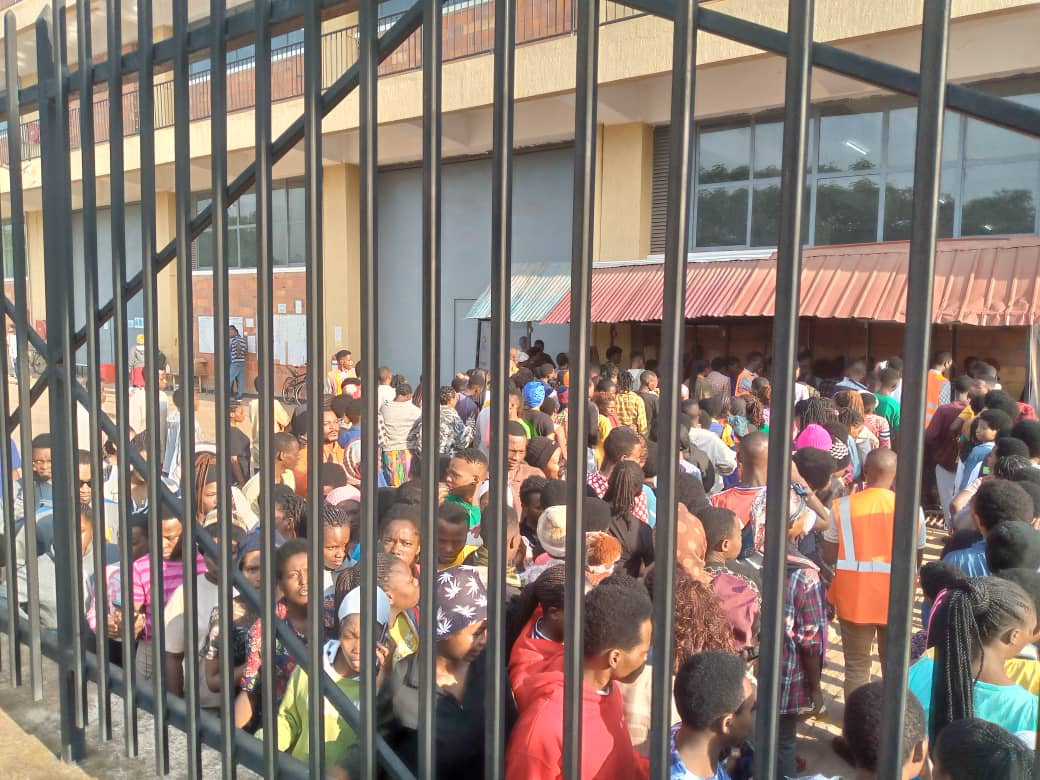
Workers in the Kigali Special Economic Zone (KSEZ) urges dedicated public buses amid repeated incidents of muggings and chronic lateness linked to long daily walks to and from the industrial park.
In a morning visit to one of the factories located in Masoro, KIGALIINFO found crowds of workers rushing through the gates shortly before 7 a.m, scrambling to enter before the doors closed.
Many of them commute from the nearest suburb of Ndera, a journey that can take up to an hour on foot, while others begin their day as early as 3:00 a.m. to avoid being late.
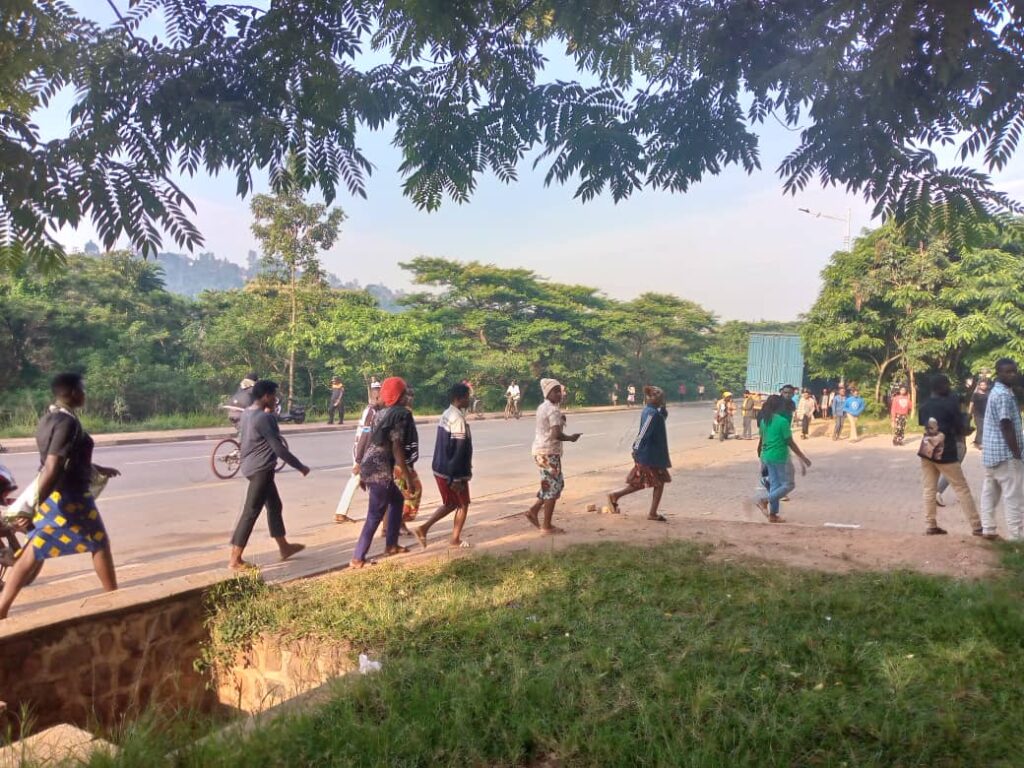
Sibomana Emmanuel, a worker from Karembure in Kicukiro, said he resorted to buying a bicycle after surviving many attempted muggings in Remera.
“I used to leave home at 3 a.m. and walk up to here. One day muggers were almost about killing me in Remera. That’s when I decided to buy a bicycle so I could arrive safely,” he said.
His colleague from Nyanza in Kicukiro said that without bus fare, he must leave home at 4 a.m, and walk in the dark. When he can afford transport, he still has to stop at multiple points from Nyanza via Remera before reaching where the bus drops him for another journey of walking to Masoro.
Workers say buses often drop passengers far from the factories, forcing them to walk more than one kilometer into the industrial zone.
Despite the long commute, many earn just 1,500 francs per day, or between 45,000 and 50,000 francs per month. After paying rent and food expenses, some are left with only 5,000 francs for transport each month, leaving walking as their only option.
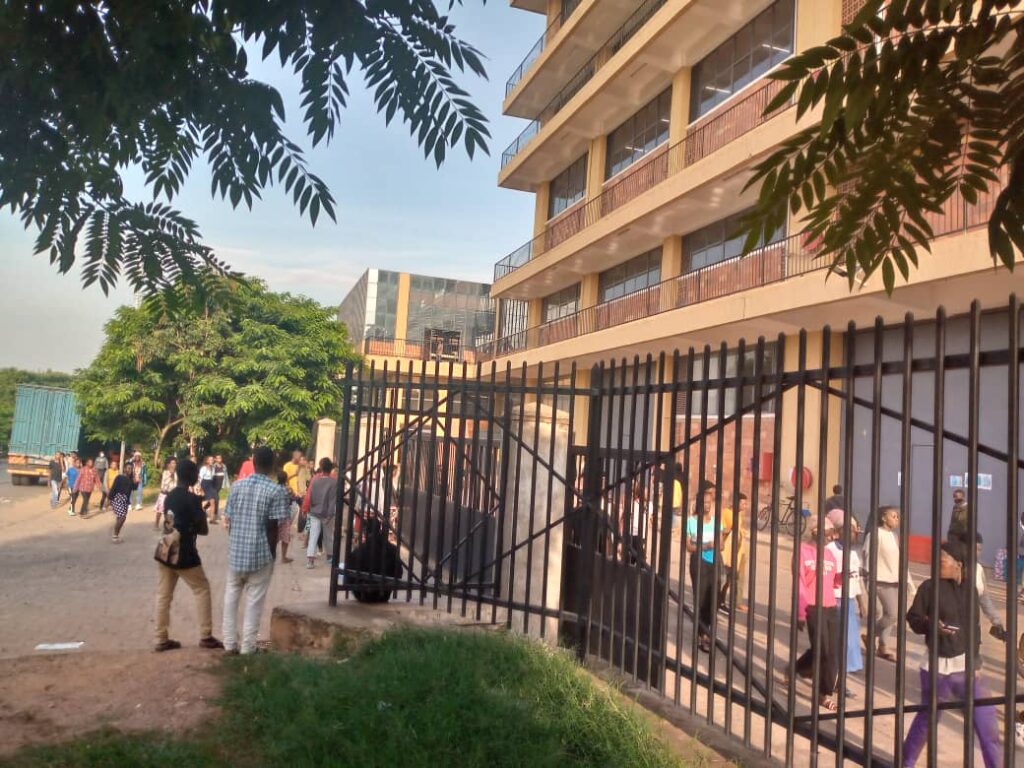
Several workers report being robbed, especially women who say they fear crossing isolated valleys around Ndera when working shifts end late.
“Sometimes we leave work very late, and muggers wait for us in the small valley toward Ndera. They stole my phone there. Some women say they’ve been even assaulted, yet our employer don’t react at all. Buses would really help us,” said one garment factory employee.
Infrastructure Minister, Dr. Jimmy Gasore, recently told Parliament that the government plans to provide buses for Masoro’s industrial workforce, as part of the city’s transport reform expected in 2026. The transport management agency ECOFLEET has not yet commented.
A New Times article that was published in November 2024 indicated that by 2023, the Kigali Industrial Zone was receiving over 91,000 workers daily, underscoring the urgent need for organized transport for one of the city’s largest labor hubs.
Ends
